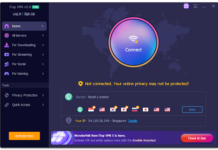Life has taken a different turn over the past 6/7 months due to the outbreak of COVID-19. The economy has seen an awful downward trajectory but slowly things are getting better. And to cope up with this situation you need to re-evaluate your financial and investment strategies and be more aware of online frauds
As you spend more & more time remaining indoors due to lockdowns, you rely heavily on making online purchases & conducting online businesses. It may result in malicious attacks on your cybersecurity. Moreover, these online frauds are capitalizing on the tension speculating around the world over the outbreak of COVID-19. Therefore taking extra precautions is of paramount importance to safeguard your online profile.
So, hop on board as we suggest utilizing the following strategies that can help you to defend yourself against online frauds-
1. Remain Up-to-date
Relying on online shops to make purchases or banking online to conduct financial transactions has become common during these quarantine days.
That said, a potential risk also arises. The cybercriminals capitalize on this confusion to manipulate regulatory instructions of your financial transactions.
If you are not aware of these facts, you can easily fall to their prey. That’s why it is imperative to stay up to date with the news of your financial institutions, banks, and also about financial trends, investment strategies, and of course information related to the latest financial scams.
One particular site for news about the trendiest investment and scams is Nobsimreviews.com. You can check out their blogs as they cover all the latest bits of news about what is happening in the world of investment.
Also Read: How to Protect Your Company With a Cybersecurity Service
2. Stop Opening Strange Mails
Scamming with fake emails is the most common way of online fraud. Yet, many experts fall to these traps.
The first & foremost step you can take is by not opening any email you don’t know. In most cases, these emails contain malware that poses a potential threat to your device.
You need to download the attachment to open the mail. By doing so, your hard drive downloads & installs malware on your device without you even knowing it.
To stop this from happening, all you have to do is just ignore the mail. There are some other signs also to identify malware. These emails don’t have any institutional address; instead, they have personal names. You can look up the domain name to determine authenticity.
3. Avoid Clicking Fraudulent Links
It is one of the most effective ways to fall prey to online phishing sites. One of the most leading attractions of recent times is enjoying a free subscription to some reputed streaming sites, namely, Netflix, Amazon Prime, Disney++, Hot star, Apple+, etc.
People get tempted easily by this opportunity & click on the given link. But instead, they find themselves on a spam site.
You may get the links from your close friends or your Facebook friends, whom you may not know very well. Before clicking on the link, call your friends or acquaintance and ask about the link.
You can identify a strange link by seeing typos in it. No matter what you do, please don’t click on the link unless you are sure about its authenticity.
You can also take help by copying & pasting the link on a reputable link checker to ensure its validity.
Also Read: Mega-Hacking: Billions of Internet Devices at Risk
4. Change Passwords Frequently
People still set their passwords by a simple 123456 or “password”. Hackers rely on a lot of different techniques and software to get your password.
It would help if you refrain from using your pet’s name, kid’s name, or birthdays as passwords. These are easy to crack.
Besides, the malicious programs that the hackers use try every password combination & leave you vulnerable.
Use a password, which is easy for you to remember, but will be difficult for the others to crack. In this regard, please don’t write the passwords somewhere that is easily accessible or store them on your phone. Instead, you can try using password-manager based applications.
Those applications generate unique passwords for you with upper case, lower case, special symbols, etc. Therefore, you won’t necessarily need to remember the passwords every time you log in somewhere.
Please change passwords several times a year.
5. Make a Habit of Using Two Factor Authentication
The two-factor authentication is a new addition to cybersecurity protection. In this process, you can’t directly log into your account by typing the password.
Instead, you will get a secret OTP code in the phone number you have predominantly selected as your secondary contact source.
You can also set the option to receive emails instead of OTP codes. There will be a link provided in the email & by clicking on that link, you will be able to access your account.
Often you will be asked one or two security questions to make sure it is you.
Although you will need a few extra seconds to log in, it’s a relatively safer approach.
6. Avoid Public Wi-Fi Facilities
Try not to use public Wi-Fi because they are not secured at all. Using available Wi-Fi makes your data vulnerable, as predatory actions can be carried out. Anyone can access your data if you use unsecured public Wi-Fi.
That’s why try not to do online shopping using unsecured wifi. Your credit card info and password can be accessible by anyone.
If you must use it, try using it through a Top rated VPN. Your data will be wholly encrypted & will be harder to access.
7. Never Share Personal Credentials
You may receive sudden cold calls asking about your personal info, credit card number, password, and social security numbers.
Never share your credentials with anyone, let alone the OTPs. Find out who’s asking, then move forward.
Even if you get a slight hunch, ask them to send an official email for your info. Contact with the respected authority immediately to judge the validity.
8. Avoid Inquiring Pop-Up Advertisements
Pop-Up advertisements can be another source of online fraud. While browsing, you may come across some pop-up ads that contain fancy offers.
The offer may include a handsome return with a minor investment within a short period or a trip to a fancy place. All of these offers are tempting enough to persuade anyone.
But again be skeptical and verify the information before pressing any of the “agree” or “sign-up” buttons.
Also Read: The Cybersecurity Risks of Automotive Cloud Computing
Final Thoughts
Online scammers use all sorts of different tactics every now & then. In most cases, they ask you to put your email address, credit/debit card info to sign up for a free trailer. Always be skeptical about what you see online. Follow the above tips to avoid all sorts of online frauds.











